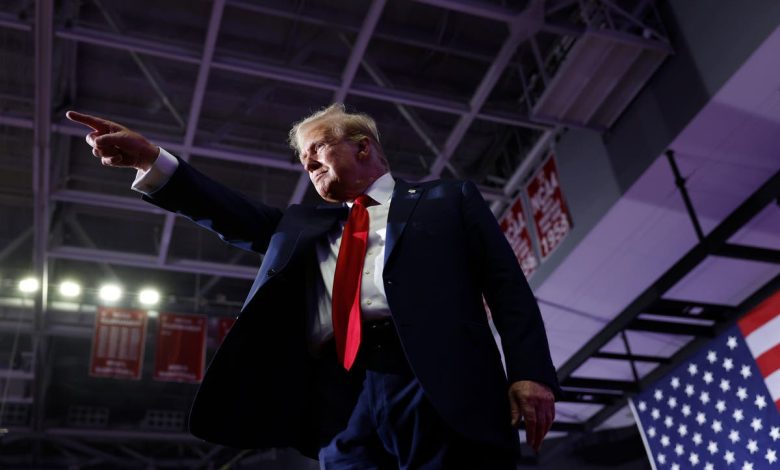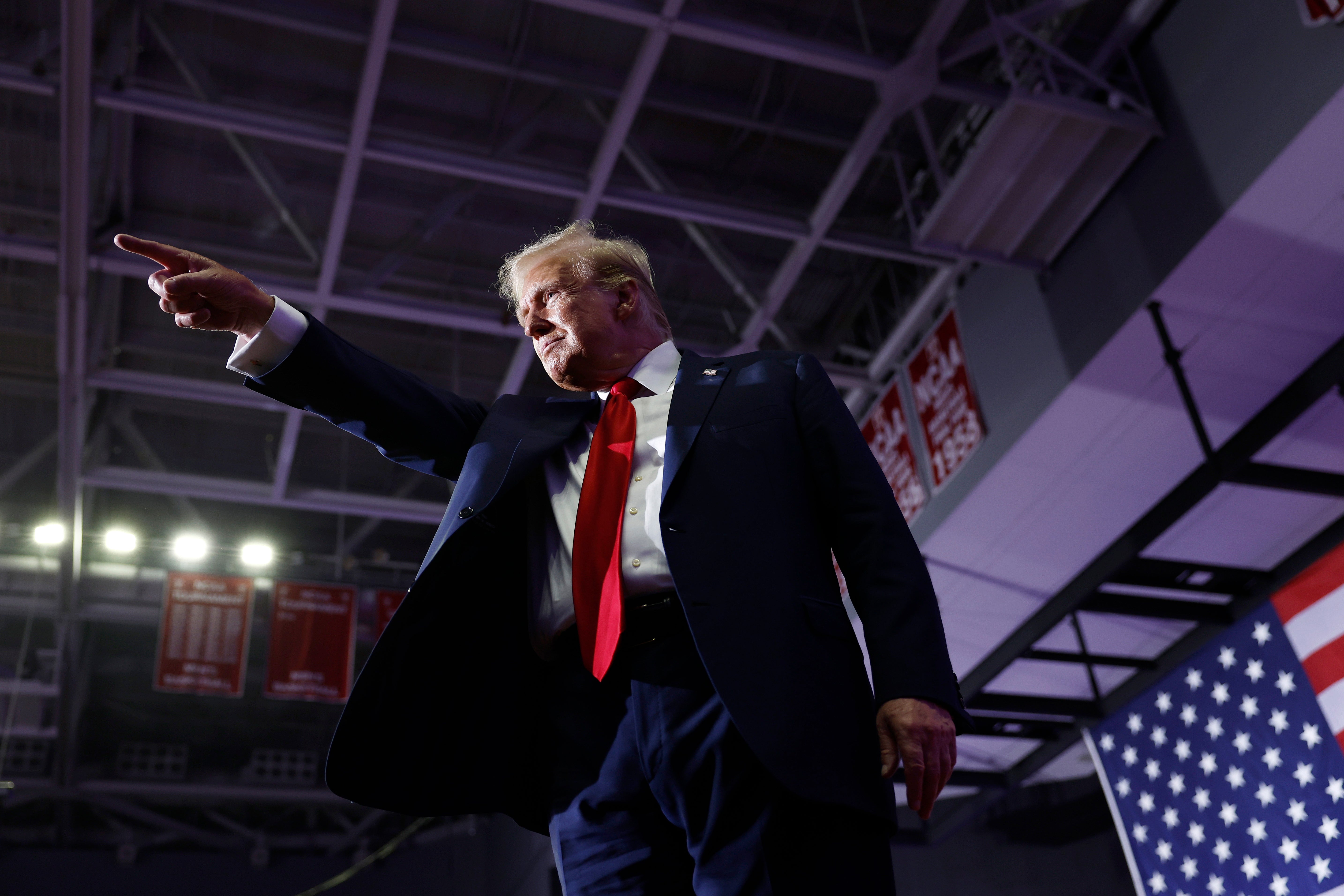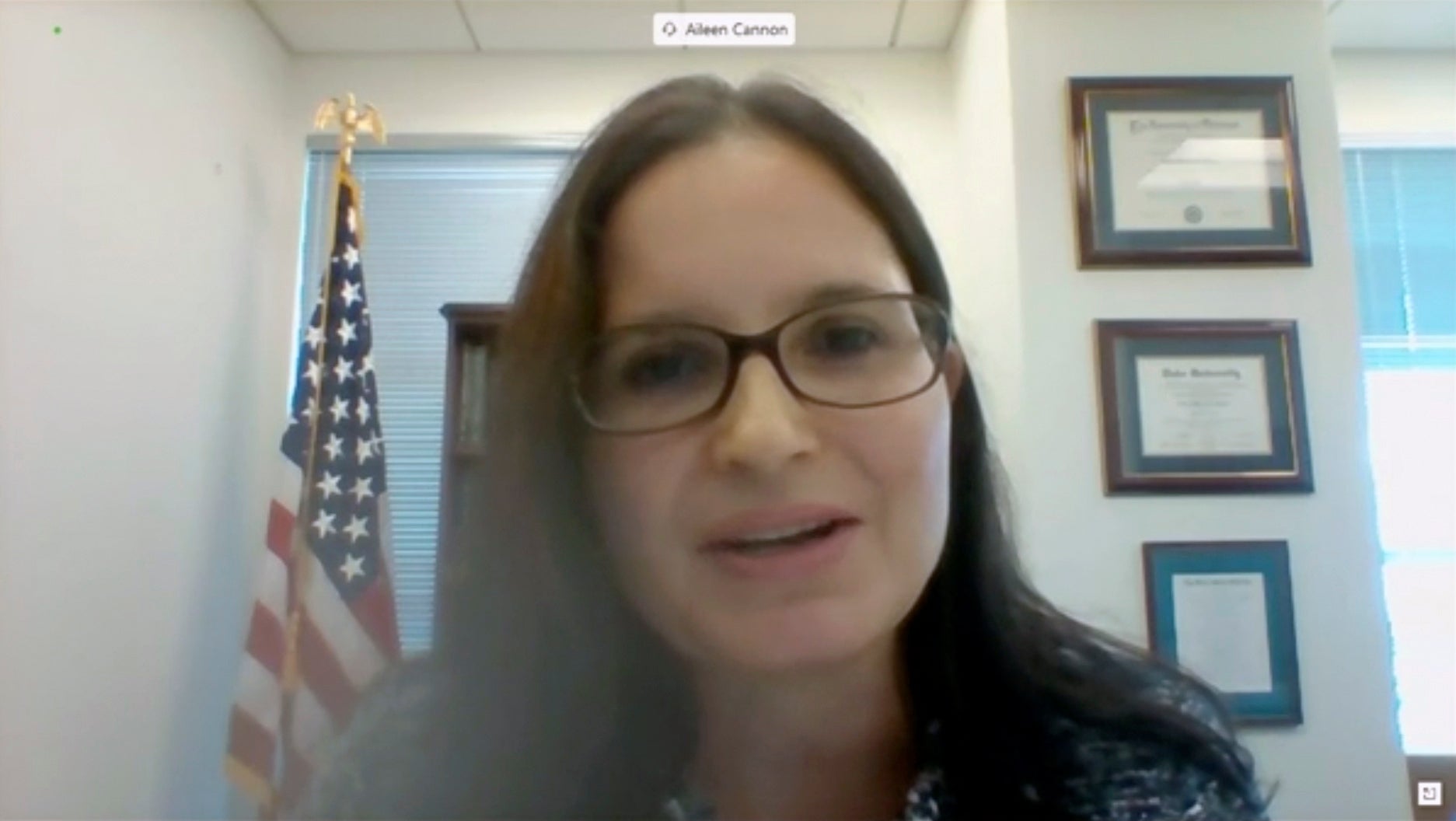Will Trump face another gag order? His Mar-a-Lago judge isn’t convinced

The judge presiding over Donald Trump’s classified documents case snapped at prosecutors twice within 20 minutes during a hearing on whether to put a limited gag order on the former president for his false claims that have fueled threats against officials.
Special counsel Jack Smith’s office has repeatedly warned that Trump’s rhetoric and bogus statements about the FBI’s use of deadly force has opened the door for harassment against the officials prosecuting him.
During a tense hearing in Florida on Monday, federal prosecutor David Harbach argued that merely redacting officer names from court documents is not enough to protect them.
Harbach appeared to grow frustrated by District Judge Aileen Cannon’s insistence that he prove that Trump’s words were to blame.
“Mr Harbach, I don’t appreciate your tone,” Judge Cannon said from her Fort Pierce courtroom.
Trump is under two gag orders already – one in his hush money trial and another in his federal election interference case – after judges agreed that his social media posts and rhetoric threatened to compromise the proceedings and endanger witnesses, jurors, and court staff.
He also was under a gag order in his civil fraud case in New York.
But Judge Cannon isn’t convinced he needs another.
“Where do you see a call for violence?” she asked prosecutors on Monday.
“There still needs to be a factual connection between A and B,” she said.

Prosecutors are seeking a narrowly tailored order that would block the former president from making public comments that they fear will endanger the lives of FBI agents working on the case.
Judge Cannon isn’t expected to issue an immediate decision, and it’s unclear when she will.
The hearing on Monday was in the middle of a three-day streak of hearings on Trump’s motions to dismiss the case against him and what evidence can be introduced at trial.
In court filings leading up to Monday’s hearing, prosecutors pointed to Trump’s ongoing false description of the FBI’s deadly force policy in relation to the law enforcement search of his Mar-a-Lago property.
The former president and messages from his campaign have repeatedly falsely stated that he narrowly escaped death from federal agents who were there to kill him. He was in New York at the time of the search.
A fundraising email falsely told supporters that federal agents were “locked & loaded ready to take me out & put my family in danger.”
Trump’s defense attorney Todd Blanche even admitted that the FBI’s deadly force policy is standard.

In court filings, prosecutors have pointed to an attempted attack on an FBI office in Ohio three days after the Mar-a-Lago search, as well as the recent arrest of a Trump supporter accused of threatening an FBI agent who investigated Hunter Biden.
“Deploying such knowingly false and inflammatory language in the combustible atmosphere that Trump has created poses an imminent danger to law enforcement that must be addressed before more violence occurs,” prosecutors wrote last week.
Harbach told the judge on Monday that “the government is at a loss to conceive why Mr. Trump would say something so false, so inconceivable, or inviting of violence.”
Trump’s statements are “beyond irresponsible,” he added.
Smith described that dynamic in court filings in Trump’s January 6 case last year as “part of a pattern, stretching back years, in which people publicly targeted” by Trump are “subject to harassment, threats, and intimidation.”
The former president “seeks to use this well-known dynamic to his advantage” and “it has continued unabated as this case and other unrelated cases involving the defendant have progressed,” Smith argued.
Trump faces 40 separate charges stemming from allegations that he withheld hundreds of documents at his Florida property after leaving the White House, then conspired to obstruct the government’s attempts to get them back.
He has pleaded not guilty.







